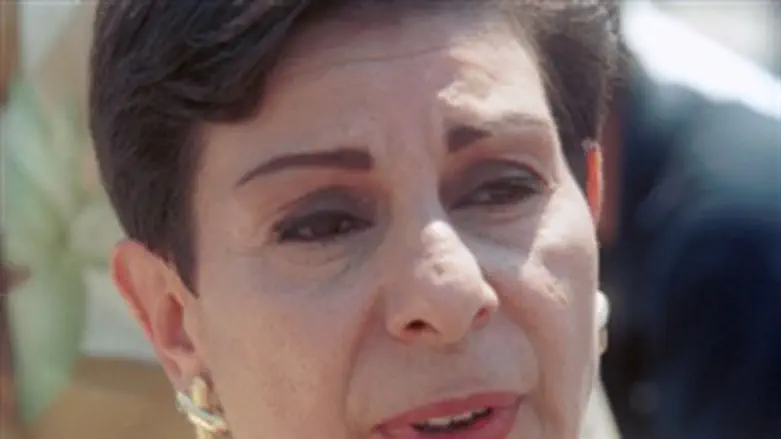
.Pessimism in the Palestinian Authority about the prospects for peace with Israel has followed the country’s national elections on the “morning after.”
“I don’t see a peace coalition or a peace camp emerging now and revitalizing itself,” said Hanan Ashrawi, a member of the Palestine Liberation Organization (PLO) Executive Committee.
Going into the elections, Ashrawi had told the Saudi Okaz newspaper, “elections in Israel will bring about an even more extreme right-wing government that will seek to destroy the possibility of peace, not only in the Israel-Palestinian arena, but in the entire region.”
Ashrawi followed up with reporters again at a news briefing in Ramallah on Wednesday, the day after 66.6 percent of Israelis cast their ballots in what at first appeared to be a near-even split between the right and left-wing camps.
With 99 percent of the votes counted, the left and right were only really even if one included the Israeli Arab parties among the leftist bloc. Such parties include Knesset members such as Ahmed Tibi, Haneen Zouabi, and Jamal Zahalka, all of whom have bluntly advocated the elimination of the “enemy” State of Israel, and expressed their hope for the Palestinian Authority, as “Palestine,” to rise in its place.
A right-wing coalition is still likely to be put together by Prime Minister Binyamin Netanyahu, who like other faction leaders is actively engaged in trying to form a winning combination. But it is probable Netanyahu will have to moderate his coalition and create a more centrist government, this time around. The reason: a dramatic drop in mandates for the Likud-Beytenu list and the rise to second place of centrist former TV news anchor Yair Lapid’s “Yesh Atid” (There is a Future) party.
Lapid campaigned on a platform that highlighted what he called the “equal share of the burden, the cost of living and housing.” He adamantly maintained to reporters that his primary responsibility was to “raise the issue of the middle class.” The expression, "equal share of the burden" in Israel refers to to the mandatory military service in the IDF and for those who are eligible to choose the option, its alternative, national service.
The leftist Labor party, led by another former journalist, Shelley Yechimovich, is in third place, having won 15 mandates. She is followed by two right-wing parties tied with 11 seats each - hareidi-religious Sephardic Shas party, and Bayit Yehudi (Jewish Home) led by another newcomer, former IDF special ops officer Naftali Bennett.
The Bayit Yehudi leader also referred to taking care of the “equal share of the burden” in his post-election remarks on Wednesday, saying “the public went for something new. Both Yair Lapid and we are new. The public is now waiting to see the results. Our commitment is to restore the economy and take care of the equal share of the burden.”
Leftist Tzipi Livni’s “HaTnuah” party won 6 votes, as did the far-left Meretz party. The United Arab List-Ta’al party won 5 seats, and Balad won 3. The Arab-Jewish “Hadash” (New) party won 4 seats, and the once-powerful Kadima party, founded by former Prime Minister Ariel Sharon, squeaked in with a bare 2 seats.